Why I am a feminist and supporter of LGBT rights
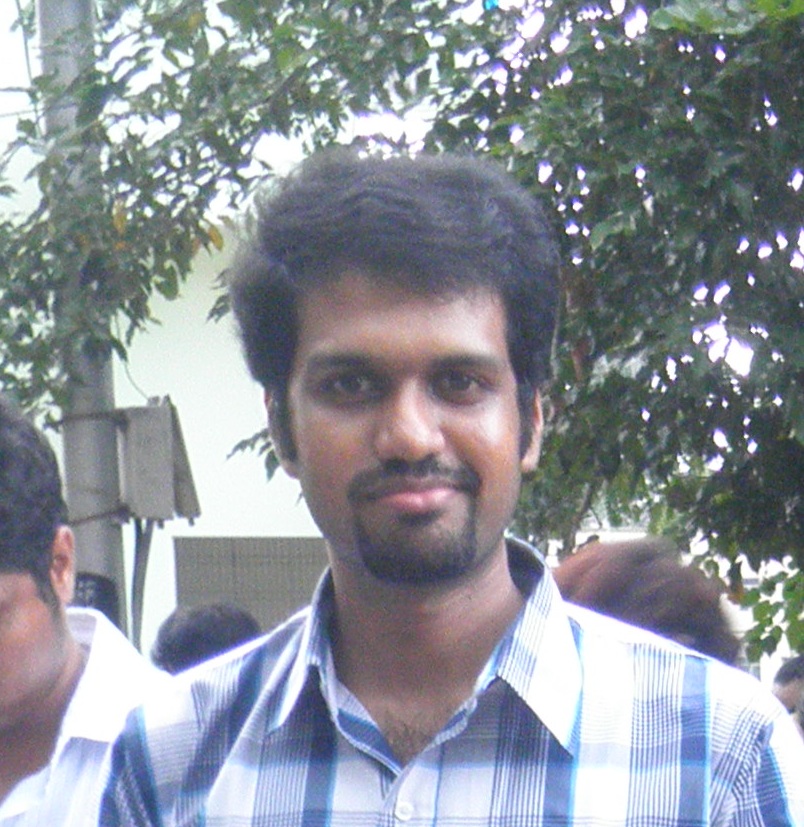
Editors’ Note: Some of us Orinam volunteers first met Soorya Sriram at a panel discussion on LGBT issues organised by Nirmukta/Chennai Freethinkers in February 2014. We subsequently read the essays* co-authored by Geetha TG and Soorya on misogyny, male privilege and transphobia, on the Gender Awareness Promoters tumblr blog. More recently, in June, we ran into him and his parents at Chennai’s Rainbow Pride march. Unable to contain our curiosity any longer, we asked him how he, an ostensibly straight cis Madrasi male, grew to become a supporter of women’s and lesbian, gay bisexual and transgender (LGBT) rights. Here is his response.
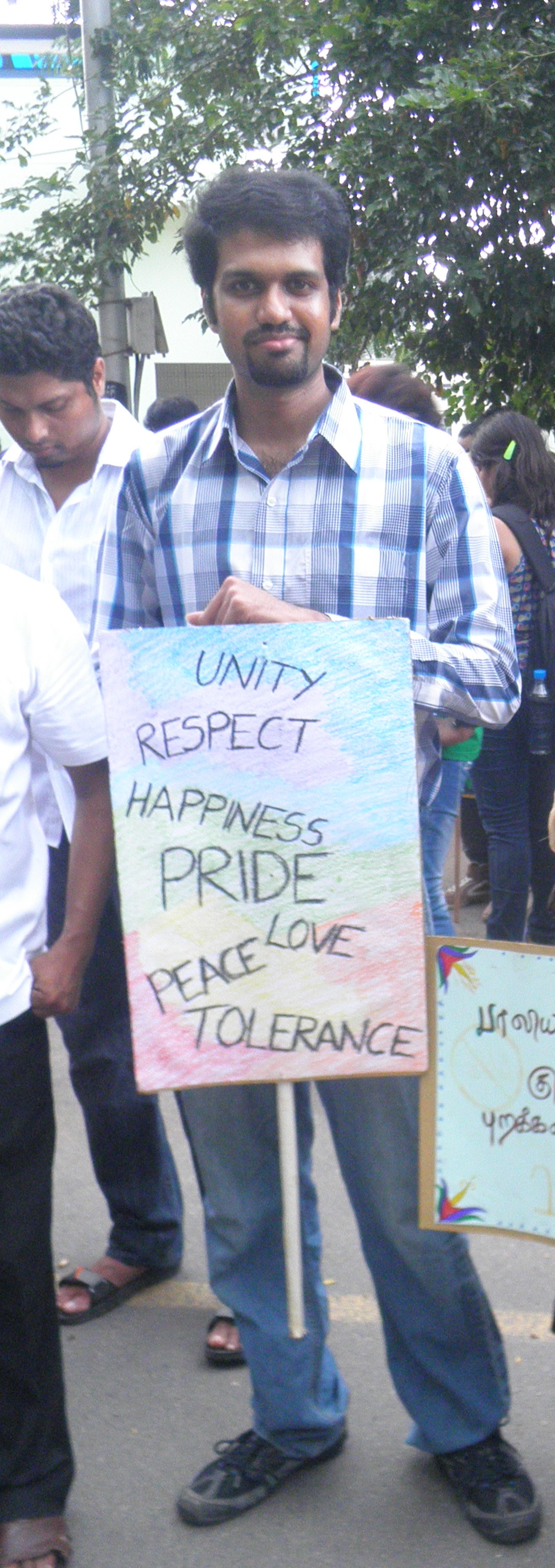
My answer is not really straightforward. I must reflect on key events in my life to attempt to answer this question.
Born into a family that belonged to an ‘upper caste’ as defined by Hindu beliefs, I grew up with the privilege accorded to a heterosexual gender-normative middle-class male. Though our family has seen significant financial turmoil, we never really struggled for food or shelter. As a child, I did not perceive the existence of oppression in my circles, nor did my family tell me anything about it. Why would they? We never saw any of it.
I was sent to good schools and grew up listening to stories of people from difficult backgrounds who had made it big through sheer hard work. All the students I hung out with belonged to a similar social stratum. I assumed my bubble mirrored all of society. At that stage, I did not know much about the evils such caste and poverty that plagued our society. The notion that everyone had the same opportunities and it was up to people to utilise the same and get rich or gain power was constantly reinforced in me. I started passing judgments on people with whom I had no immediate contact with at a rather early age. When I saw homeless and/or elderly people seeking alms on the street, I did not see people who had been socially marginalised. I deemed them lazy and judged them for having being reckless in spending in their younger years, thereby having brought their current state of poverty on themselves. In effect I was a complete believer of the ‘Just World Theory’, where one assumed that everything was fair, and to complain was an act of cowardice.
My first realization that people weren’t neatly divided into the man-woman binary was as a young boy traveling in a local train. I saw a group of transwomen (I know this in retrospect, not then) seeking money from the public, performing their signature claps. Curious, I asked my mother who they were. She answered, out of ignorance – or because she didn’t know how to explain to a child – that they were people who had two hearts. Relentlessly, I sought details and asked her how two hearts would fit into the circulatory system. Questions like these, whether to my mother, or to teachers while discussing sexual reproduction in biology class, were met with discomfort, awkward pauses, shifty answers and attempts to change the topic. I internalized this discomfort as transphobia.
When a classmate, a boy with stereotypically feminine traits, was bullied and excluded by his peers from discussion and socialization, I was among those who joined in the jeering.
My pursuit to learn the Vedas sent me on a fundamentalist spree for a short while.
I may, perhaps, have remained that way throughout my life.
In my late teens, my world, as I had imagined it, broke down. Though I held that people had equal opportunities, the statistics said otherwise. Certain communities had more people in the upper economic strata and some were over-represented in the poorer sections. Inequalities were also evident along gender lines in politics, workforce, social participation etc. In trying to reconcile these facts with with my belief system, I was faced with the following choices:
1. Assume women, gender minorities, sexual minorities etc. were inherently inferior.
2. Accept I was wrong in my assertion that life is fair to all.
I knew that the first possibility wasn’t true, leaving behind the alternative. This was the defining moment when my belief system broke down. I stopped assuming fairness and looked at the world again. Like NEO in matrix, I suddenly saw a whole new layer hovering around our lives. I noticed my relatives advising their daughters not to laughout loud or tell them not to go out after it was dark. I had never heard anyone tell me any of this. I began questioning the male privilege I had taken for granted.
Following much introspection and re-examination of my religious beliefs, I moved out of my safe zone and embraced atheism. I ended up being severely ostracised by peers for an episode in which my actions were deemed contrary to the strongly religious-cultural ethos at my school. No one spoke to me, and my classmates actively avoided me. Two years passed thus, leaving deep and long-lasting marks on my sense of self. During this period of extended social rejection, realisation hit me hard. What I was experiencing then must have been exactly what my supposedly feminine male classmate must have felt all these years. The reasons were different, but the exclusion, and resultant pain must have felt similar. And what I felt was temporary: he must have been experiencing this for a long time. The day after I had this realisation, I walked over to him next in the class, said “I am sorry”, and walked away without explaining why I apologised.
While I was able to emerge from that phase of being secluded and return to my more social self, the realisation that there are people marginalised overtly and covertly – sometimes for their entire lives – remained with me. I started speaking with classmates whom the class mocked often, and trying to learn about why they were excluded. This continued into college.
Unfortunately, this behaviour on my part was driven by a misplaced sense of sympathy. I assumed that it was noble to devote my time for the betterment of others. But as time went by, I realised the folly of a sympathy- rather than empathy- driven approach. Time and again I caught myself believing in nonsense and spewing nonsense, but it only amplified my drive to be a better human being. I kept pushing aggressively and started systematically studying.
In 2011, while in my third year of college, I met some people at Nirmukta, an organisation dedicated to promoting secular humanism and free thought. Interacting both online and offline with this community guided me on the principles of structured logical thought and laid the foundations of humanism for everyone to adhere to. Nirmukta members were patient enough engage with me and my still-evolving convictions, and helped me organise my thoughts in a coherent logical manner.
I read about and grew aware of the injustice meted out to caste minorities and noticed my own relatives engaging in caste-based discrimination. I read about the difficulties and struggles of people with physical and mental disabilities. I observed the difficulties faced by women every single day of their lives, a reality of subjugation, harassment and violence. The prejudice faced by gender minorities and people of different sexual orientations. With the single key of empathy, I learned to love of people regardless of any minor unimportant difference between us.
Subsequently, the biggest challenge crept in. I felt it was no longer adequate to simply believe in these ideas and confront my prejudices. It was necessary for the people I love too to stop inadvertently cause mental harm to others. Within the circle of loved ones, the closest were my immediate family. Coming out to them as an atheist and ally of LGBT people appeared an insurmountable goal. I wasn’t really sure about what my parents believed in. I knew a large number of my relatives were right-wing fundamentalists, but I wasn’t sure how open my parents were to receiving alternate points of view, some challenging their most fundamental assumptions.
Summoning the courage, one day in December 2013, I initiated a discussion at home by expressing my anguish over the Supreme Court verdict upholding Sec 377. Curious, my parents asked what it was. Apparently they really hadn’t thought about any of this. What became a Sunday afternoon of intense discussion, soon became a regular affair at home with everyone discussing the problems faced by sexual minorities and women. I realized that their reservations around LGBT issues were overridden by the humanistic values they held.
A few months later, when I announced that I planned to participate in Chennai Rainbow Pride March, they immediately asked if they could join too!
We still do have animated discussions on feminism and LGBTQI rights, and I know that while my parents still have questions, they are most definitely not fundamentalist in their view.
Back to the original question, what prompts me to speak up and intervene when I see discrimination?
Answer: Why wouldn’t I? It is a shame that inequality and injustice persists. Replace the words ‘women’, ‘caste minorities’ and ‘LGBTQI’ with ‘human’. Rephrase terms ‘women’s rights’ and ‘LGBT rights’ with ‘human rights’ and the answer becomes self-evident.
I guess the answer is best summed up by what Desmond Tutu said “If you are neutral in situations of injustice, you have chosen the side of the oppressor. If an elephant has its foot on the tail of a mouse, and you say that you are neutral, the mouse will not appreciate your neutrality.”
* Geetha TG and Soorya Sriram. What’s going on with men?
Geetha TG and Soorya Sriram. Transgender Woes.
Geetha TG and Soorya Sriram. A No is a ‘No’ – Not ‘Yes’, Not ‘Maybe’.

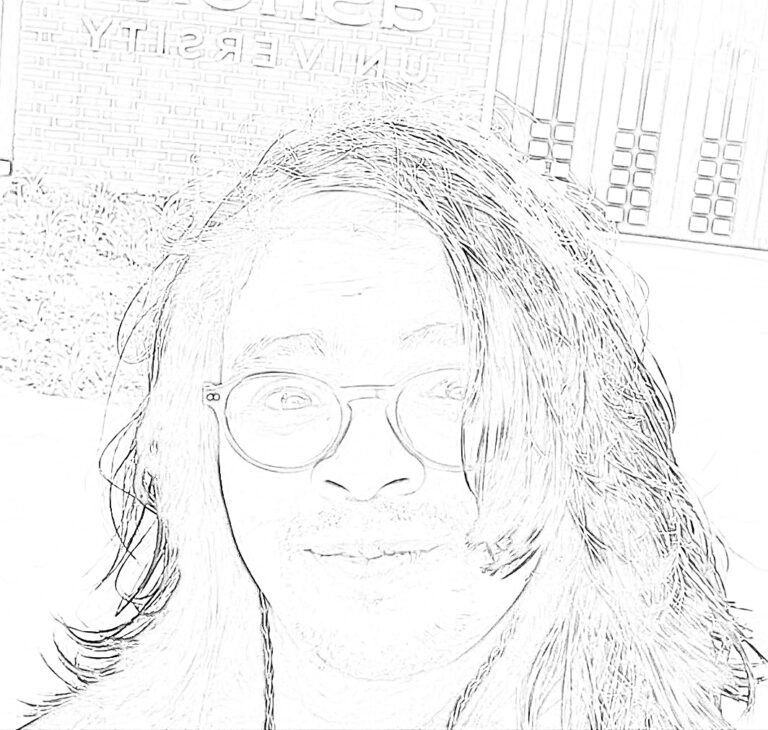
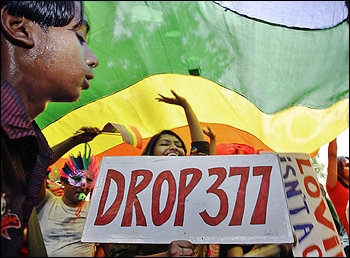

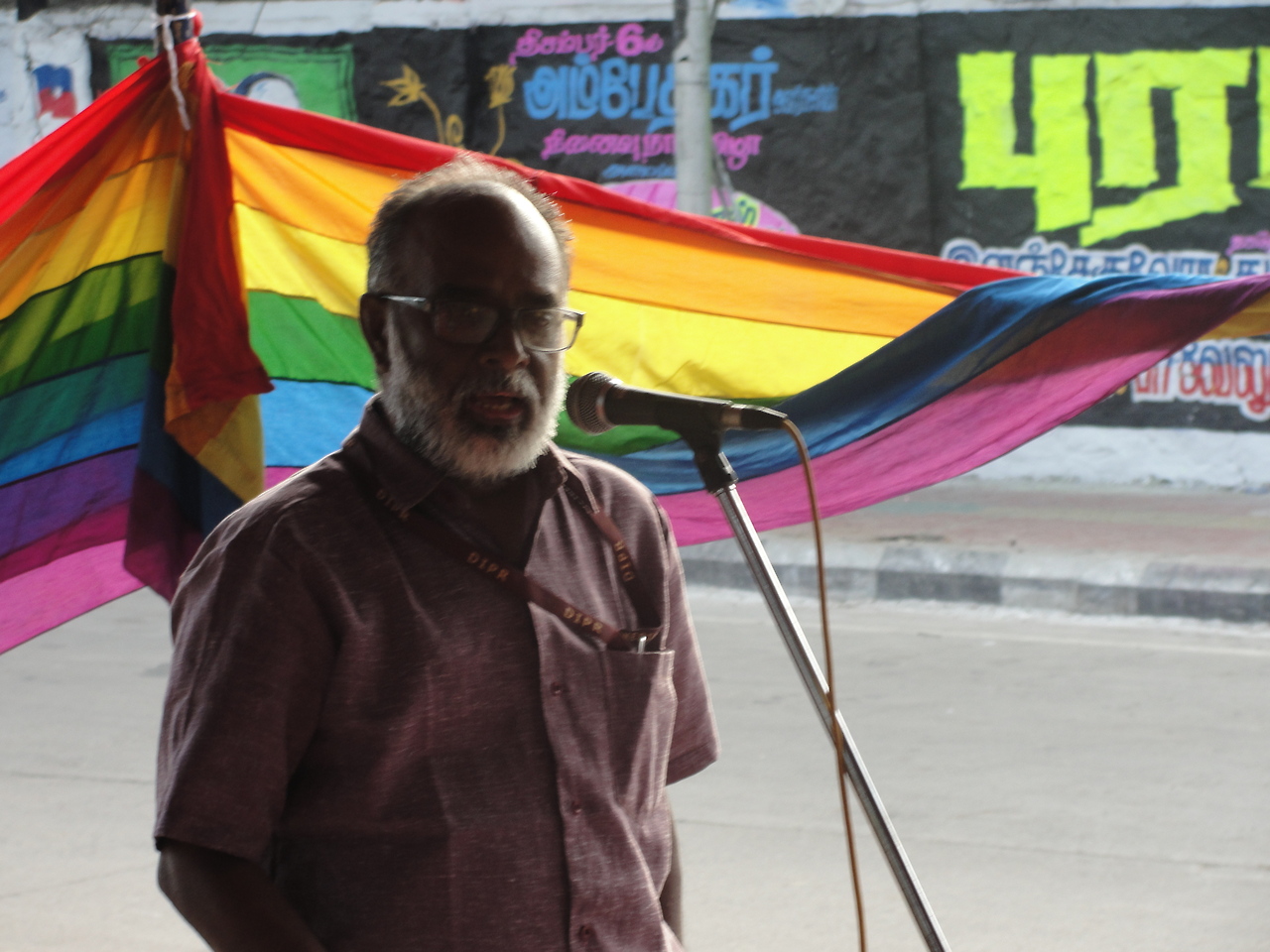
superb soorya… what a wonderful honest and well written piece…. way to go soorya.. way to go.. wishing you all the very best….
Hi ..Really superb & Brave
Wonderful Soorya, A very touching and personal account of your growing up years. It is really sad that children can also be very cruel to their peers. And opening up and talking about it on a public platform shows that you are bold now.
This reminded me of the current trend of caste discrimination faced by children from Dalit – Adivasi backgrounds. Caste has become more pervasive in rural schools in northern Tamil Nadu now. Children from dominant castes, which are considered to be backward themselves as per brahminic religion, assert their caste superiority over Dalit and Tribal children at every opportunity, by flaunting their caste credentials openly.
Humans are so easily led by foolish, irrational beliefs and claims, it’s hard to believe that they can be so gullible. As you said, the Just World theory operates in all of us to some extent. And it is only when we learn to look critically at our fond beliefs or ideals, that it starts crumbling like a pack of cards.
Great job Soorya, way to go.
Thanks Soorya for sharing your life experience. We need more folks who can be empathetic to others suffering. Kudos!!
That’s the greatest thing i ever read Soorya Sir. Proud to know that there are people who believe in pure equality of “Humans”. This has always made me question as to why, being humans, people are treated on the basis of what they believe in or on what they are. You are absolutely right , being feminine doesn’t make a person turn into female. I don’t understand what people find funny in feminism. Its only a long tradition of narrow minded thoughts of the people carried on from generations. People call me manly for riding a motorcycle to college. Imagine how stupid that sounds.
I am also working with a non profit organisation named “Jigyaasa Educational Trust ” which emphasize in spreading knowledge among st the avoided sections of children. It gives me great pleasure and satisfaction when the kids wait for our comeback. Their happiness is the most satisfactory reward we receive all the time.
Yes even i am a feminist and a supporters of LGBT rights
Coz they have the right to live the way they want and love the one they love
Rainbows!
People like you have my support. Looking forward for more of it 🙂
God Bless You
Lots of love and respect